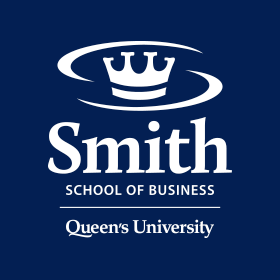
Palda, Kristian
Professor Emeritus
Kristian Palda is professor emeritus of Queen’s University, Kingston.
Born in 1928 in Prague, he escaped communism in 1949 and eventually found his way to Queen’s where he graduated with a B.Com in 1956. At the urging of Professor Rich Hand, later vice-principal, he pursued his studies at the University of Chicago Graduate School of Business (GSB), where he obtained an M.B.A. in 1958 and a Ph.D. in 1963.
On his thesis committee was George Stigler (Nobel Prize in economics 1982) and under his guidance Professor Palda won the coveted Ford Foundation doctoral dissertation prize in 1963 and saw his thesis published by Prentice-Hall under the title The Measurement of Cumulative Effects of Advertising Effects. This work came to be one of the most cited in marketing and in the economics of advertising and established the field of “Lydiametrics” according to MIT econometrics professor Ernst Berndt.
After publishing three books and many academic articles on economics and marketing in the 1960’s, Professor Palda continued his research on the theory of a hierarchy of effects in advertising and shortly afterwards came to Queen’s in 1970 after becoming a full professor at the Claremont Graduate School (with posts held before at HEC in Montreal and the SUNY at Buffalo).
Upon arriving at Queen’s he proceeded to publish in the Journal of Law and Economics in 1975 what would become the foundational research piece in the then emerging field of Public Choice. The topic was the relation between election advertising and political success, with which his name is now firmly associated.
His research interests then turned to the relation between R&D and economic performance. In a critical essay written for the Fraser Institute in 1979 called The Science Council’s Weakest Link, professor Palda launched a nation-wide debate, appearing with Linda Frum on As it Happens and on all major media shows, on the degree to which government should involve itself in the management of commercial research. Two further books on the topic followed and in recognition of this and of his stature as one of the primary researchers in empirical marketing he was awarded the Queen’s Prize for Excellence in Research in 1987. Throughout his time at Queen's professor Palda maintained a high profile abroad with research stays at Louvain, Aix-en-Provence, Nice, Strasbourg, Poitiers, Clermont-Ferrand, Prague, and the nascent Center for Study in Public Choice at Virginia Tech.
After the fall of communism in 1989 he returned several times a year to Czechoslovakia and then later to what became the Czech Republic to help establish budding schools of business. He was also awarded an honorary doctorate in law by Charles University in Prague in recognition of the fact that at the age of 20 he had been politically persecuted by communist agitators backed by the force of Russian arms, expelled from law school, and had a warrant of arrest served upon him for being the son of a so-called capitalist. These experiences alerted him to the importance of open debate and just administration in university affairs and he served in the Queen’s senate where he actively promoted a critical approach toward political correctness and in particular teaching evaluations that asked students to comment on the state of mind of the professor rather than focusing on strictly teaching-related issues.
Upon his retirement from Queen’s in 1995, and after 24 years of service he continued his research activities. In 1997 he organized the meetings of the European Public Choice Society meetings in Prague, attended by then Prime Minister Vaclav Klaus and he served as Co-President of the European Public Choice Society in that year. His 1998 article in the journal Public Choice, written with his son Filip, also a University of Chicago Graduate, has become highly cited. He continues his deep involvement in education and believes firmly in the words of Marcus Cicero who wrote in his essay On Old Age (De Senectute) “You may be sure, my dear Scipio and Laelius, that the arms best adapted to old age are culture and the active exercise of virtues.”
- Subject: Marketing
- Email: kristian_palda@yahoo.com

